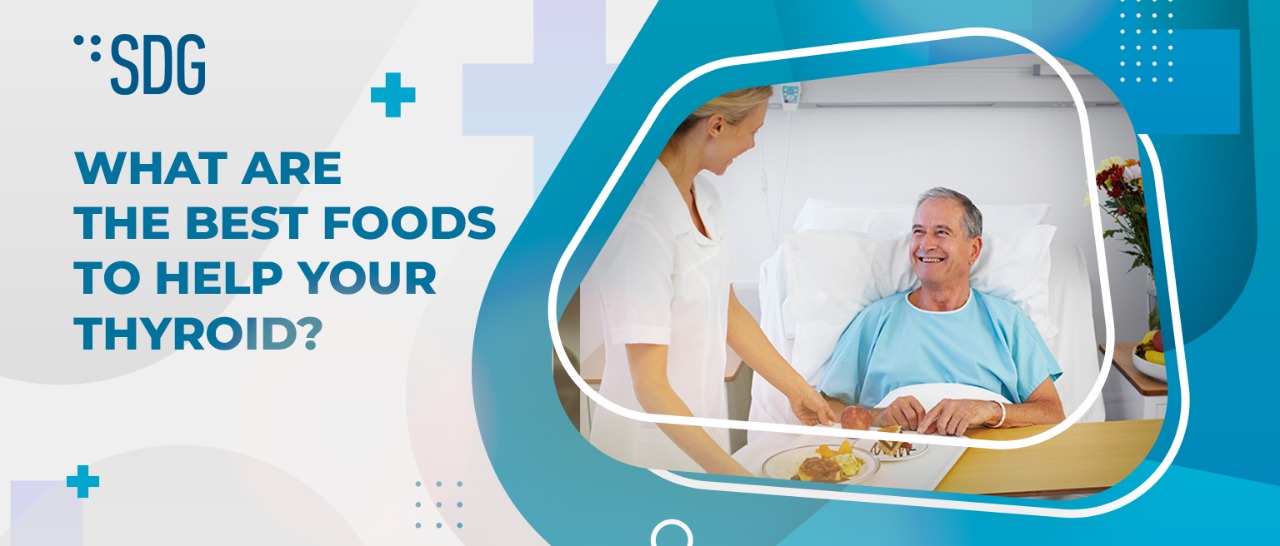Thyroid patients have it hard. From the maintenance of the wait to the diet itself, they have to go through rigorous practice to ensure that they are on the good side of things. Today, we will focus on the “diet” section of a thyroid patient.
But before we discuss that, let us cover more on the condition itself. Hypothyroidism is generally a condition in which the body takes a back seat in producing enough thyroid hormones. Thyroid hormones normally assist one in controlling the growth, cell preparation, and metabolism of an individual.
So, as a result, anyone suffering from the condition may experience a range of issues including, tiredness, weight gain, hair loss, feelings of cold among others. According to a source, Hypothyroidism tends to affect 1% to 2% of people worldwide. The same study has shown that it is 10 times more likely to affect women than men.
Although maintaining the meal you consume will not cure hypothyroidism. Nonetheless, a combination of the right nutrients along with the prescribed medication sure can restore thyroid functions. Moreover, it will minimize the symptoms as well. So, without further ado, let us outline the best diet for hypothyroidism.
The Effect Of Hypothyroidism On Metabolism:
The thyroid hormone tends to assist the speed of your metabolism. The faster your metabolism is, the more calories your body will burn while at rest. However, those who have hypothyroidism tend to produce fewer thyroid hormones. Therefore, they have a slower metabolism, which translates to the fact that they burn fewer calories at rest.
Having a slow metabolism comes with multiple health risks. It may leave you tired. Moreover, it will increase your cholesterol levels and make it harder for you to lose weight. In that case, one needs to moderate their weight using intense cardio. Fast-paced exercises like walking, running, hiking as well as rowing may prove to be beneficial.
Foods You Should Eat:
There are plenty of food options to go around even if you are a thyroid patient. Those options are as follows.
- Eggs: These are the best option as they are rich in iodine and selenium. The white of the egg is full of protein so it is a whole meal.
- Meat: All meats including lamb, beef, and chicken should be eaten.
- Seafood – All seafood including halibut, shrimp, shellfish, salmon, tuna, etc is safer to eat.
- Vegetables:All variations of veggies should be eaten. However, you need to consume cruciferous veggies at a moderate rate, especially when cooked.
- Fruits: Fruits including berries, bananas, oranges, tomatoes should be eaten.
Foods To Avoid:
The good news for those who have hypothyroidism is that you don’t have to avoid many foods from the chain. However, food that contains goitrogens should always be eaten in moderation. It should also be ideally cooked.
You need to also avoid eating foods that are processed. These are the foods that contain calories so avoiding them is a good idea because the consumption may lead you to gain weight easily. Here is a list of food you should avoid.
- Millet of all kinds
- Highly processed foods include cakes, cookies, and hot dogs.
- Supplements include selenium and iodine. Too much of it may cause you harm.
Foods You Can Consume In Moderation:
Here is a list of foods you can consume in moderation. We mean to recommend in moderation because these meals include goitrogens. So, if you consume it in excessive amounts, you may put yourself at harm.
- Soy-based foods like tempeh, edamame, soy milk, tofu, etc.
- Fruits include pears, peaches, strawberries, etc.
- Beverages include alcohol, green tea, and coffee. These are the beverages that may irritate your thyroid gland.
Important Nutrients For Thyroid Patients:
Several different nutrients are significant for any thyroid patient. They are as follows.
- Iodine – Iodine is an essential mineral that is required to produce thyroid hormones. Therefore, people who have been affected with iodine deficiency may be at a higher risk of hypothyroidism. Iodine deficiency is one of the common effects that nearly one-third of the population is suffering from. Although places where iodized salt and iodine-rich food is available see the place where people aren’t at risk. You may consider the following food if you are concerned about your iodine level.
- Seaweed
- Fish
- Dairy
- Eggs
You can also opt for an iodine supplement prescribed by your doctor.
- Selenium – Did you know that Selenium assists in activating thyroid hormones so that the body can use them? It is one of the essential minerals rich in antioxidants. You will benefit from it as it protects the thyroid gland from damages by the free radicals. Some of the selenium-rich foods are mentioned below.
- Brazil nuts
- Tuna
- Sardines
- Eggs
- Legumes
- Zinc – Similar to selenium, zinc also helps in achieving thyroid hormones. Studies have shown that zinc helps regulate TSH. Some of the foods that are rich in zinc are as follows.
- Oyster
- Shellfish
- Beef
- Chicken
Harmful Nutrient For A Thyroid Patient:
Although several nutrients may affect the health of those suffering from hypothyroidism. Goitrogens happen to be one of them.
- Goitrogens – It is a compound that interferes with the normal function of the thyroid gland. They veg their name from goiter, which is an enlarged thyroid gland that comes with hypothyroidism. Surprisingly many foods are rich in goitrogens.
- Soy food includes tofu, tempeh,
- Greens include broccoli, kale, cauliflower, spinach.
- Fruits and starchy plants including cassava, peaches, strawberries, sweet potatoes, etc.
- Nuts and seeds including peanuts, pine nuts, millet.
Ending note:
Apart from that, you can incorporate gluten-free grains and seeds, as well as dairy products into your meal. Non-caffeinated Beverages are also promoted. Now that you are caught up with what to eat, take better care of your health.






